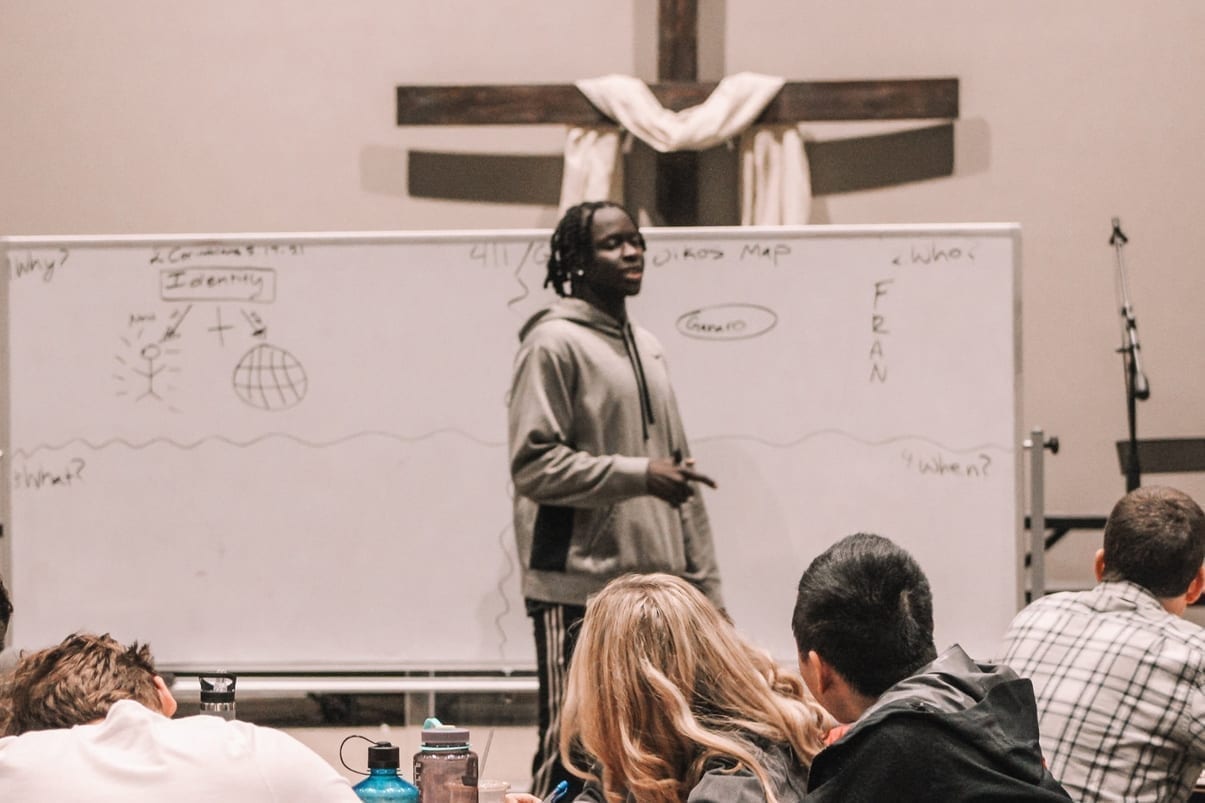When Americans count their blessings at Thanksgiving, God will get most of the credit, a new study shows. And money might be the last thing on their minds.
Nearly two-thirds of Americans (63%) say they give thanks to God on that day, according to LifeWay Research. Fifty-seven percent give thanks to their family. About a third (31%) thank friends. Eight percent thank themselves, while 4% thank fate.
Most Americans are thankful for family (88%), health (77%), personal freedom (72%) and friends (71%). Fewer give thanks for wealth (32%) or achievements (51%), the study shows.
“The blessings that matter most are the ones money can’t buy,” said Scott McConnell, executive director of LifeWay Research.
In a representative online survey of 1,000 Americans, researchers gave respondents 10 options to be thankful for – from family and health to achievements and wealth.
Their responses were shaped in part by demographics.
Those 65 and older are more thankful for family (92%) and health (86%) than fun experiences (48%). Those under 25 are thankful for fun experiences (70%) and their achievements (61%) but still cherish family (77%).
Americans with bachelor’s degrees (45%), graduate degrees (46%) or evangelical beliefs (41%) are more thankful for wealth. Those who didn’t go to college (23%) or who don’t have evangelical beliefs (31%) are less thankful for wealth.
Women are most likely to give thanks for family (91%), health (83%) and friends (75%). Men are slightly less likely to give thanks for family (84%), health (71%) and friends (67%).
Overall, giving thanks seems alive and well in America, despite the stresses of the recent election season. Only 2% say they are thankful for none of the 10 options provided.
“Many Americans have felt discouraged about events of the past year,” McConnell said. “But they still find a lot to be thankful for.”
When asked to rate what they are most thankful for, family wins in a landslide. Six in 10 Americans (61%) say they are most thankful for family. Thirteen percent say health, while 9% say personal freedom.
Few choose safety and security (3%), memories (3%), friends (2%), opportunities (2%), achievements (2%), fun experiences (1%) or wealth (1%) as what they are most thankful for.
Past Thanksgivings
Americans have celebrated days of thanksgiving in the fall since 1621, when the Pilgrims at Plymouth Plantation held a feast at the end of their first harvest. In 1789, President George Washington set aside Nov. 26 of that year as a thanksgiving day in honor of “that great and glorious Being who is the beneficent Author of all the good that was, that is, or that will be.”
States celebrated Thanksgiving Day on different dates until 1863, when President Abraham Lincoln set aside the fourth Thursday of November as an official federal holiday. Lincoln credited God for the nation’s blessings: “They are the gracious gifts of the Most High God, who, while dealing with us in anger for our sins, hath nevertheless remembered mercy.”
Still, Thanksgiving isn’t for everyone. Seven percent of Americans say they don’t give thanks on Thanksgiving Day. Another 4% say they don’t thank God, family or any of the other survey options.
Americans living in the South (72%), African-Americans (83%), those attending religious services at least once a month (84%) and Christians (80%) are among those most likely to thank God. Protestants (90%) are more likely to thank God than Catholics (67%). Those with evangelical beliefs are most likely to thank God (94%). One in 4 nones – those with no religious affiliation – also say they thank God.
Catholics (65%) are more likely to thank their family than Protestants (49%).
Those with evangelical beliefs are half as likely to thank family (32%) as those without evangelical beliefs (62%).
Those in the Northeast are more likely to thank themselves (14%) than Midwesterners (7%) and Southerners (6%). Men (9%) are more likely to not give thanks than women (5%). Those younger than 25 (14%) are also more likely to skip giving thanks than those 65 and older (5%).
For more information on this study, visit LifeWayResearch.com.
Methodology: LifeWay Research conducted the study Sept. 27 to Oct. 1, 2016. The survey was conducted using the web-enabled KnowledgePanel, a probability-based panel designed to be representative of the U.S. population. Initially, participants are chosen scientifically by a random selection of telephone numbers and residential addresses. Persons in selected households are then invited by telephone or by mail to participate in the web-enabled KnowledgePanel. For those who agree to participate but do not already have internet access, GfK provides at no cost a laptop and ISP connection.
Sample stratification and weights were used for gender by age, race/ethnicity, region, metro/non-metro, education and income to reflect the most recent U.S. Census data. The completed sample is 1,000 surveys. The sample provides 95% confidence that the sampling error does not exceed plus or minus 3.1%. Margins of error are higher in subgroups.
LifeWay Research is a Nashville-based, evangelical research firm that specializes in surveys about faith in culture and matters that affect churches.
(EDITOR’S NOTE – Bob Smietana is senior writer for Facts & Trends magazine.)


